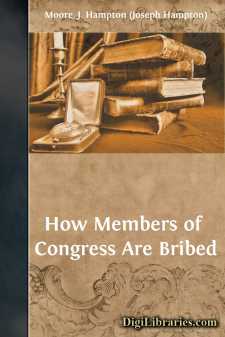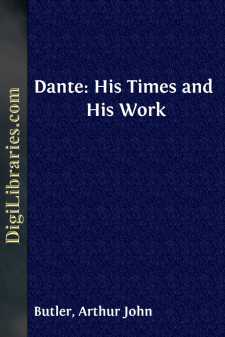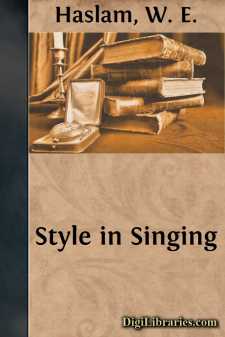Non-Classifiable
- Non-Classifiable 1768
Non-Classifiable Books
Sort by:
by:
Candace Wheeler
HOME INDUSTRIES AND DOMESTIC MANUFACTURES. The subject of Home Industries is beginning to attract the attention of those who are interested in political economy and the general welfare of the country, and thoughtful people are asking themselves why, in all the length and breadth of America, there are no well-established and prosperous domestic manufactures. We have no articles of use or luxury made in...
more...
The Lobbyist. If a persistent intermeddler without proper warrant in Government affairs, an unscrupulous dealer in threats and promises amongst public men, a constant menace to sworn servants of the people in their offices of trust, a tempter of the corrupt and a terror to the timid who are delegated to power a remorseless enemy to wholesome legislation, a constant friend to conspirators against the...
more...
INTRODUCTION This essay on Wisdom and Destiny was to have been a thing of some twenty pages, the work of a fortnight; but the idea took root, others flocked to it, and the volume has occupied M. Maeterlinck continuously for more than two years. It has much essential kinship with the "Treasure of the Humble," though it differs therefrom in treatment; for whereas the earlier work might perhaps be...
more...
by:
R. J. Broadbent
CHAPTER I. Origin of Pantomime. From the beginning of all time there has been implanted in the human breast the Dramatic instinct full of life and of vigour, and finding undoubtedly its outlet, in the early days of civilization, if not in the Dramatic Art then in the poetry of motion with that necessary and always essential concomitant of both—Pantomime. Indeed, of the Terpsichorean Art, it has been...
more...
by:
William James
The lectures that follow were delivered at the Lowell Institute in Boston in November and December, 1906, and in January, 1907, at Columbia University, in New York. They are printed as delivered, without developments or notes. The pragmatic movement, so-called—I do not like the name, but apparently it is too late to change it— seems to have rather suddenly precipitated itself out of the air. A...
more...
PREFACE This little book is mainly compounded of papers which appeared, part in the Monthly Packet, and part in the Magazine of the Home Reading Union. It will be seen, therefore, that it is not intended for those whom Italians call “Dantists,” but for students at an early stage of their studies. To the former class there will be nothing in the book that is not already familiar—except where they...
more...
by:
W. E. Haslam
PREFATORY NOTE “OF making many books there is no end.” Surely, the weary observation of the sage must have an especial application to the literature of Song. One could not number the books—anatomical, physiological, philosophical—on the Voice. A spacious library could easily be furnished with “Methods” of Singing. Works treating of the laws governing the effective interpretation of...
more...
INTRODUCTORY Carpentry is the oldest of the arts, and it has been said that the knowledge necessary to make a good carpenter fits one for almost any trade or occupation requiring the use of tools. The hatchet, the saw, and the plane are the three primal implements of the carpenter. The value is in knowing how to use them. The institution of Manual Training Schools everywhere is but a tardy recognition...
more...
SPOOL KNITTING Few elementary exercises have aroused more interest in the child than the toy knitting; due, perhaps, to its simplicity and his power to do it easily and well. To some keen observer the little orb-weaving spider may have suggested this form of occupation. Be this as it may, the child who is a lover of nature will be quick to perceive the strong resemblance he bears to this little insect...
more...
by:
George Sharswood
INTRODUCTION. The dignity and importance of the Profession of the Law, in a public point of view, can hardly be over-estimated. It is in its relation to society at large that it is proposed to consider it. This may be done by showing its influence upon legislation and jurisprudence. These are the right and left hands of government in carrying out the great purposes of society. By legislation is meant...
more...











